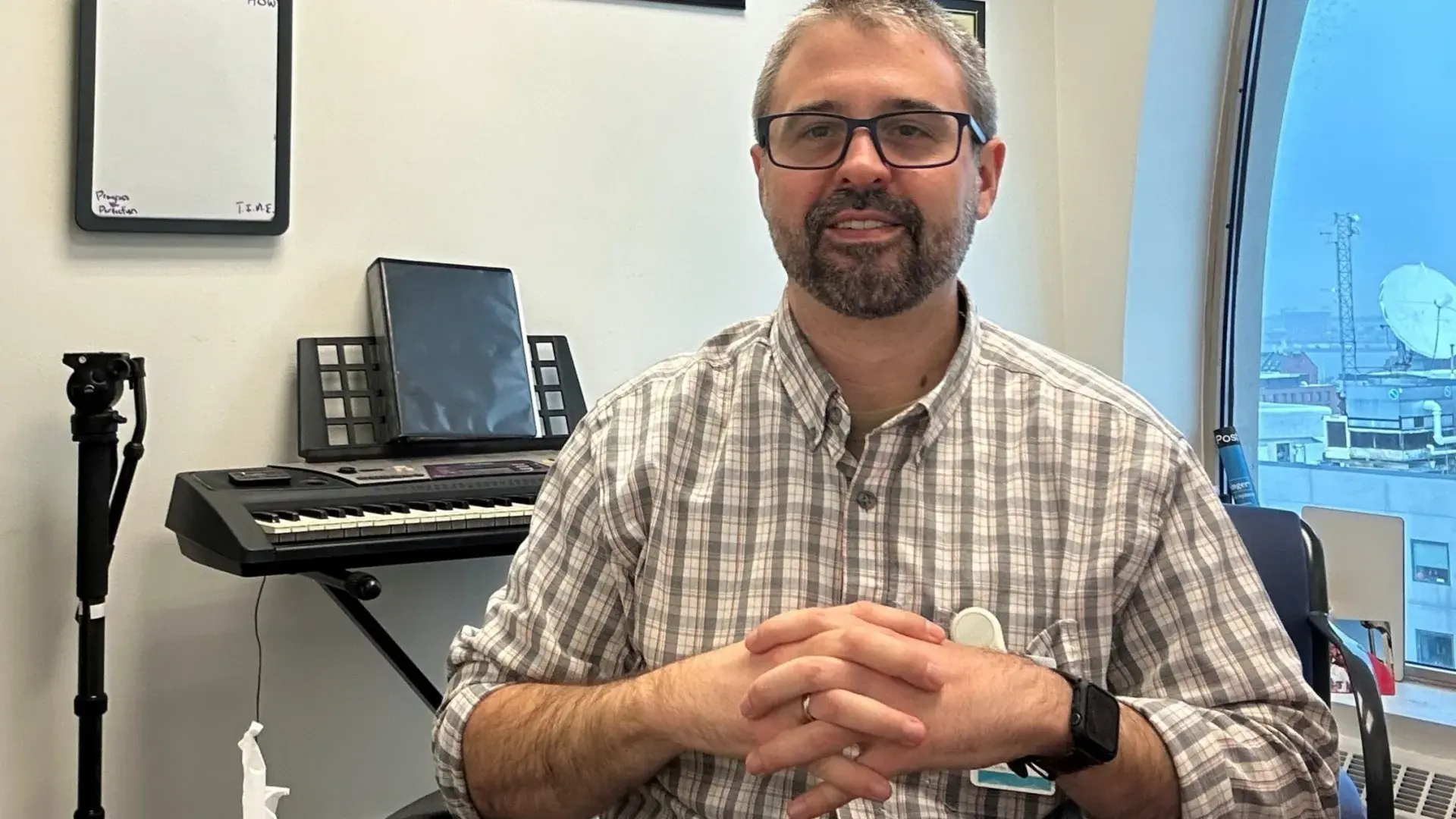
2011 SLP graduate says firsthand experience at hospital and quality IHP education sets students on path for success
Jason Muise doesn’t mind doing double-duty at Massachusetts General Hospital’s Center for Laryngeal Surgery and Voice Rehabilitation. In fact, he welcomes it.
Not only is he helping patients regain their voice, but he’s also helping MGH Institute speech-language pathology students become proficient at their craft so that they too can do what Muise has been doing since 2011.
“It brings me a lot of satisfaction,” said Muise, MS-Speech Language Pathology ’11. “The most important thing for me as a professional and as a human being, is sacrifice and serving others,” said Muise. “To know that I'm doing that for students is great, and to then see it replicated and perpetuated is why I do what I do.”
A specialist in voice rehabilitation, Muise works with individuals who are voice disordered, either because of something organic going on in their body (vocal fold nodules or polyps) or a voice use disorder, such as unbalanced muscular systems that make it tough for someone to talk.
Once a diagnosis has been established, Muise steps in with voice evaluations that includes acoustic and aerodynamic assessments of that person's voice. He typically works with patients for an hour a week over the course of a few months.
“My role there is the behavioral aspect of their rehabilitation,” said Muise.
The genesis of Muise’s role goes back 14 years, when he worked at the MGH Voice Center as part of his practicum while a Master’s SLP student at the MGH Institute. After graduating in 2011, Muise began working fulltime at the MGH Voice Center, and never left. These days, he helps guide MGH Institute students during their own clinical rotations at the Voice Center.
“We're teaching the students collaborative work with interprofessionals, so working with the laryngologists at the Center, and generating and deriving the best plan of care for a client not just under the lens of a behavioralist like us - the speech language pathologist - but really best serving our clients holistically,” said Muise. “We’re thinking about other individuals that that client might be working with too, like a physical therapist, and really trying to be as collaborative and critical in our thinking to best serve our clients.”
MGH Institute students spend a three-month rotation at the Voice Center where they learn to provide voice evaluations and gradually take part in the intervention and the therapy process in a guided and scaffolded manner.
“We'll be training them on different modalities of the therapy that we provide at the center,” said Muise. “So laryngeal massage, laryngeal visualization of the larynx via rigid endoscopy, flexible endoscopy, and skill acquisition of varied facilitative techniques that can help coax out more efficient and healthy vocal postures are areas students will develop during their experience at the Center. So, we do a lot of training with the students and then work on having them start to apply that with the clients on our caseloads.”
And if a student wants to concentrate on voice disorders, that’s an option too; Muise is a co-coordinator for the voice disorders specialization, a role he has had since 2019.
“We typically will invite students to sit in on different lectures for special topics, and we will work with those students on further advancement of their skill set for things like laryngeal imaging and various special topics found in the voice disordered population that might not have as much attention in the introductory course work,” noted Muise. “So, I'm teaching them a little bit more in depth those strategies. We do a little bit more firsthand work there as well.”
For the most part, Muise and his team work exclusively with MGH Institute students, who he says bring a lot to the table.
“MGH Institute students are coming in with this desire, this focus, and this knowledge base that they can then build upon,” said Muise, who has been working with MGH Institute SLP students for more than a decade. “We know what they're coming in with - they're coming in with a solid foundation with which to work.”
All of which makes Muise’s double duty worthwhile.
Do you have a story the Office of Strategic Communications should know about? If so, let us know.
